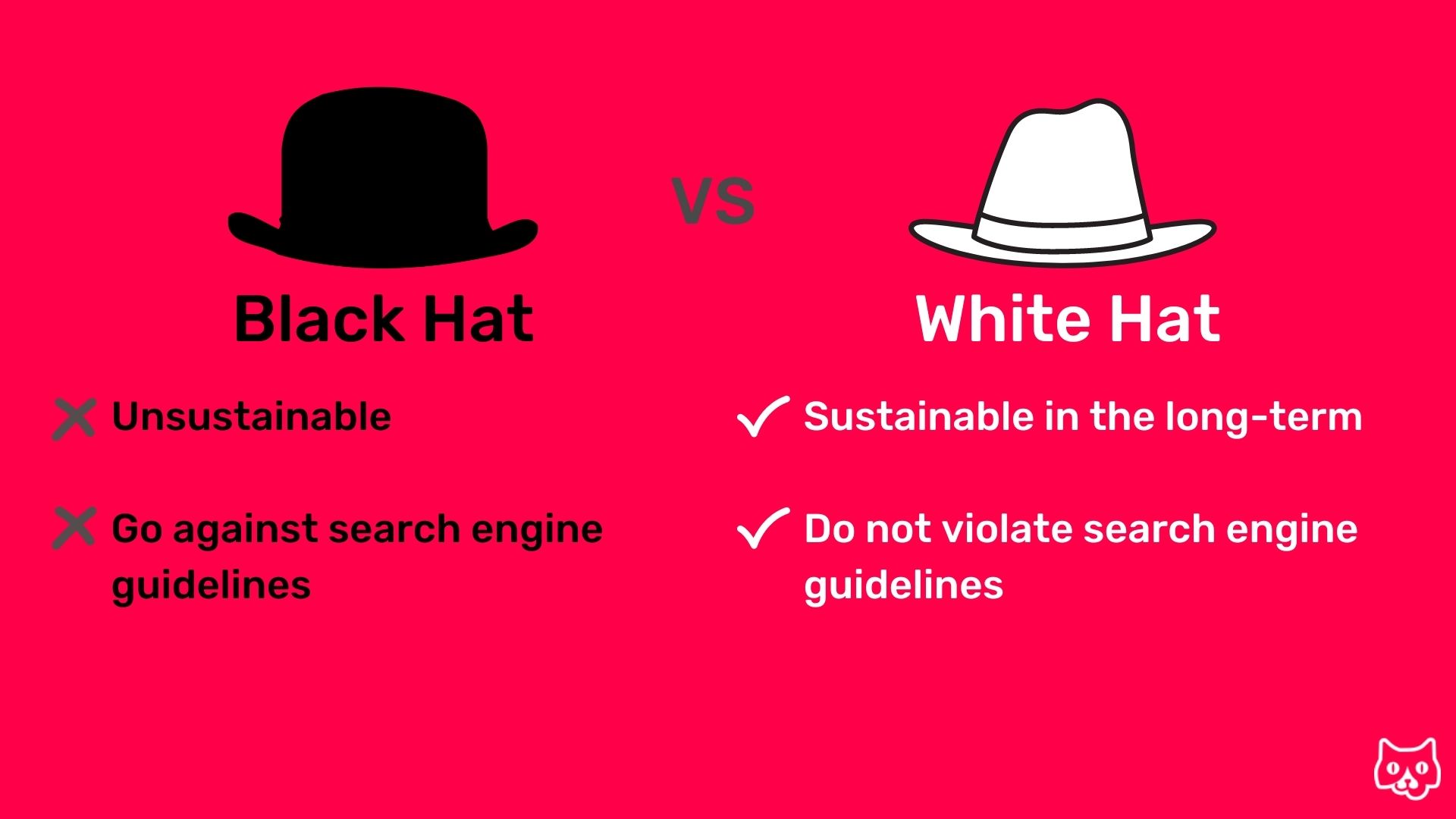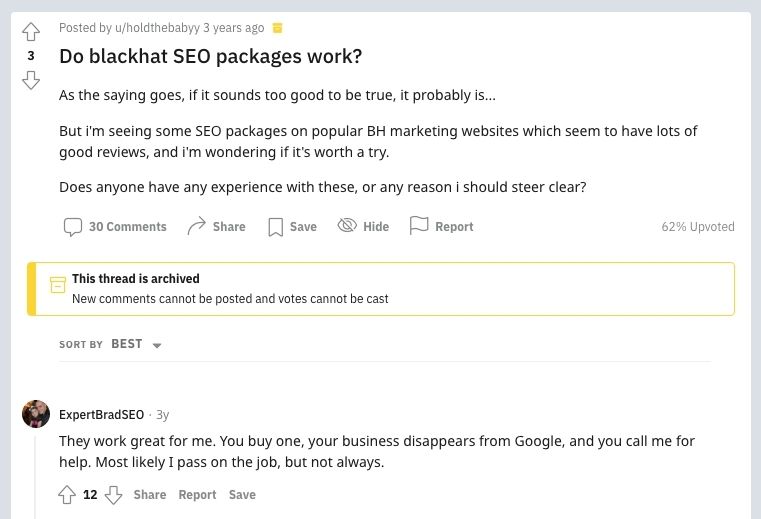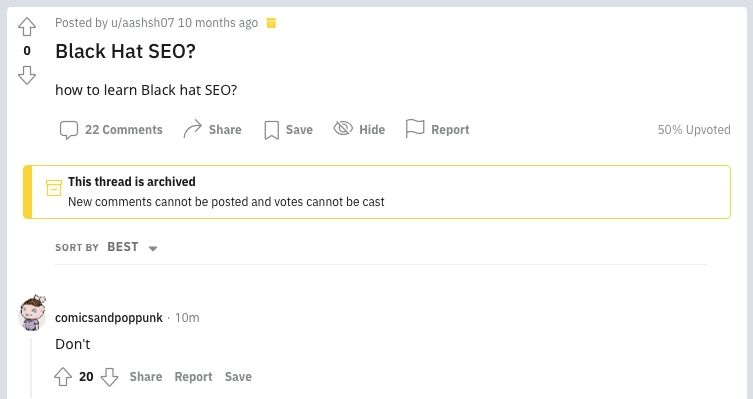What is black-hat SEO?
Black hat SEO refers to the tactics used to increase a webpage’s ranking on SERPs that violate the search engine’s guidelines.
These practices are known to rank websites quickly by manipulating algorithms, but aren’t built for longevity. Using black hat technique on your website can completely ruin it and get your content completely removed from the search engine.

Someone advertising black hat SEO opportunities on Reddit.
Black hat SEO looks flashy and successful but is a sketchy side of SEO and an unnecessary risk for your webpage.
Black-hat SEO only works for short-term gains, and ultimately hurts your website more than anything.
Black hat vs white hat SEO
The reality of SEO is that it brings growth gradually but consistently. If you have to try to cheat the search engine, it might mean you’re producing content that can’t rank on its own—whether that’s from disregarding the searcher or just producing bad content.
Black hat SEO tactics offer quick rankings and may work for a short time, but are in no way sustainable.
White hat SEO, on the other hand, is a healthy, ethical, and quality-focused approach to SEO. You focus on best practices: create quality content, focus on providing a good user experience, and rank that way.
They don’t undermine Google’s algorithms and try to break rules to rank, and are a way of building a strong SEO strategy for the long term.

Why is black hat SEO bad for your website?
Black hat SEO services usually promise you the moon, charge you extortionate amounts and then severely or even permanently damage your website.
Some black hat SEO strategies will harm your on-page SEO, like keyword stuffing.
One thing is common among all black hat SEO: your website will keep losing at every algorithm update.

Examples of black hat SEO
Some of the most common forms of black hat SEO are:
Keyword stuffing
Keyword stuffing is when people try to shove in as many keywords as possible as many times as they can to try and rank, rather than trying to comprehensively cover a topic and provide the user with valuable content.
Think of all the Amazon listings that read something like ‘Hip Hop T-Shirt Funny Vintage Street Wear Hipster Parod Shirt Rock T-Shirt Graffiti Short-Sleeved T-shirt’.
Instead, try identifying search intent and provide valuable, well-researched content.
Cloaking / Bait and switch / Code swapping
Cloaking is a black hat tactic where a website will show one version of content to search engines and a different one to users once they’re satisfied with their rank. With every new algorithm, this is very unlikely to work since search intent is so vital.
Buying backlinks
Building links is a very important part of SEO. But it’s important to pay attention to which websites you’re building links from. Buying backlinks from low-quality websites that nobody reads hurts rather than helps your website.
We understand the struggle. Finding link building strategies that actually work is the most challenging part of SEO.
Negative SEO
Trying to harm the competition for your own personal gain, regardless of the context, is just wrong.
Negative SEO occurs when somebody reports or sabotages other pages in SERPs. It can also be someone doing a black hat link building attack on your website, adding hundreds or thousands of links to your website from very bad-quality websites.
Since it can sometimes be difficult to track, Google can’t always help protect your site.
We created a guide to interviewing customers for content that resonates with them
CREATE CONTENT FOR GROWTH
So is it worth it?
Rome wasn’t built in a day. Your SEO won’t be, either.
There aren’t many quick and easy aspects of SEO. You have a few random aspects here and there that are quick and contribute to your overall SEO, like optimizing your URLs.
But then again, that’s not really one of the big factors that’ll rank your site.
It all depends on whether you want what you’re investing your time, money, and other resources into to thrive in the long term.
If those are valuable assets to you, you should probably steer clear of black hat SEO practices.

Related post: SEO Glossary: 300+ Terms for SEO Beginners
